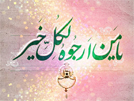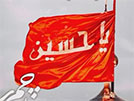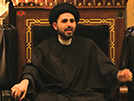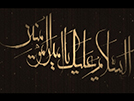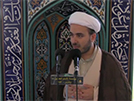The History of Interpretation and Interpreters' Methodology
- Details
- Hits: 4052
The History of Interpretation and
Interpreters’ Methodology
Introduction
Interpretation, that is the proper explanation of the meaning of Qur’anic verses and the uncovery of their aims and significations have long interested Muslim scholars and date back to the beginning of the revelation of the Qur’an. This can be easily inferred from the following verse:
كَمَا أَرْسَلْنَا فِيكُمْ رَسُولاً مِّنكُمْ يَتْلُو عَلَيْكُمْ آيَاتِنَا وَيُزَكِّيكُمْ وَيُعَلِّمُكُمُ الْكِتَابَ وَالْحِكْمَةَ وَيُعَلِّمُكُم مَّا لَمْ تَكُونُواْ تَعْلَمُونَ
“also We sent among you, of yourselves, a Messenger, to recite our signs to you and to purify you and to teach you the Book and the Wisdom”[1]
For it says that ‘the same Messenger to whom the Qur’an was sent down will teach you the Book.’
The Methodology of the First and Second Classes of Interpreters
The first class of Islamic interpreters were a number of Sahabah, i.e. the companions of the Prophet (Sahabah here does not include Imam Ali(p.b.u.h.) and other Imams of the Household of the Prophet(p.b.u.t.)) such as Ibn Abbas, Abd Allah ibn Umar and the like who made earnest endeavors and continued the interpretation of the Qur’an after the Prophet. At that time the debates about the Qur’an revolved mostly around the literary aspects of the verses, their occasions of revelation, employment of some verses to explain other ones, interpretation of Prophetic traditions on the stories [of Qur’an], the origin and the end, and the like.
The second class, i.e. the followers such as Mujahid, Qatadah, Ibn abi Layla, Sha‘bi, Sadi and others, who lived in the first two centuries A.H., followed in the footsteps of the first class and did no more in the area of interpretation than what they had done. The only additional step they took was to mention more traditions when interpreting the Qur’an.
After the demise of the Prophet (p.b.u.h.) and at the age of Caliphs, Islamic conquests started and led to Muslims’ acquaintance with different people and sects as well as scholars of different religions and resulted in the currency of theological debates among Muslims. Second, with the collapse of Umayyad Dynasty and the coming to power of Abbasides (at the end of the first century A.H) Greek philosophy was translated into Arabic and Islamic scholars got access to it. Intellectual debates and discussions gained currency in scholastic circles. Third, simultaneous with the currency of philosophical discussions and debates, Gnosis and Sufism made their way into Islamic circles and attracted a number of people. And finally, like some people at the advent of Islam, a number of unsophisticated people chose to show great devotion to the instructions of the Prophet(p.b.u.h. & his household) and ignored and disregarded their intellect and reasoning and, in their understanding and interpretation of the Qur’anic verses, confined themselves to hadiths (traditions). In their understanding of traditions, they also made no inference and applied no reasoning and took account of the exoteric side (surface meaning) of traditions only. If they discussed and explained the Qur’an, they would do such only from a literary perspective.
In addition to these four factors, one other factor that contributed to this diversification of interpretation methodology was divergences between schools (of religion) which had created a wide gap between Muslims. The gap was so wide that it caused different schools of Islamic communities to have nothing in common and to be divided over every issue except for the testimony; “There is no god besides Allah and Muhammad is the Apostle of Allah.” These schools had differences of opinion on such issues as Divine Names, Allah’s Attributes and Actions, meaning of heavens and whatever exists therein, Earth and whatever exists on it, providence, divine destiny, compulsion and delegation, reward and punishment, death and purgatory, resurrection, Paradise and Hell, and other similar issues which are, directly or indirectly, related to religious sciences. This led to a division among different schools in the interpretation of the Qur’an, and each followed its own method of interpretation.
Traditionists’ Method of Interpretation
In their interpretation of the Qur’anic verses, the traditionists, i.e. experts in Hadith, contented themselves with what the companions of the Prophet and the followers had narrated. They did not care what the companions or the followers narrated or what the content of the narration was; to them, if it were a tradition, it would suffice. If there were no traditions on the interpretation of a verse, they would stop and say that they might not make any comment about the verse because it was not clear enough to obviate the need for interpretation, nor were there any traditions having interpreted the verse. Therefore, “We should,” they asserted, “stop and say all is from Allah even if we are not able to understand it,” and invoked the verse:
وَالرَّاسِخُونَ فِي الْعِلْمِ يَقُولُونَ آمَنَّا بِهِ كُلٌّ مِّنْ عِندِ رَبِّنَا
“And those firmly rooted in knowledge; they say, “ We believe it, all is from our Lord”[2]
However, they adopted a wrong approach because they disregarded and ignored their intellect and reasoning, and this was tantamount to saying: “ We do not have the right to employ our intellect and reasoning in understanding the Qur’anic verses, and we should only consider what Ibn Abbas or another companion had narrated about the verse.” However, the truth is that the Holy Qur’an has neither discredited the intellect nor is it sensible for the Qur’an to discredit it since our intellect testifies to the credibility of Qur’an and to the fact that the Qur’an is the Word of God (and even to the existence of God). Furthermore, the Qur’an has invited man to contemplate its verses, employ his intellect and reasoning in understanding them, and to resolve, through contemplation, the apparent discrepancies which may seem to exist among its verses and prove that there are no discrepancies among the verses. Above all, Almighty Allah has introduced the Hoy Qur’an as a guidance for man and a light that illuminates everything. So, is it possible for the Qur’an is light, to be illuminated by something other than itself, or can it be imagined that something that is a guidance (to man) should need people like Ibn Abbas to guide it, and something that explains everything should need somebody to explain it?
The Scholastic Theologians’ Methodology of Qur’anic Interpretation and the Difference Between Interpretation and Adaptation
Scholastic theologians had different opinions which led them to employ the principles and ideas of their school in interpreting the Qur’anic verses and interpret the verses in conformity with those principles and ideas. Should any verse be inconsistent with those ideas, they would construe it. For the time being, we will not make any conclusion as to whether adherence to the principles and ideas of one’s own school stems from the differences in scientific theories, or it is due to blindfold imitation or mere sectarian prejudices. The point to be discussed here is that we had better refer to this method of interpretation as ‘adaptation’(tatbiq) rather than ‘interpretation’. For subscribing to a specific ideology when interpreting the Qur’an is like wearing a pair of color glasses whish causes a person to see the Qur’an in the same color as that of the glasses, impose his own ideas on the Qur’an, and adapt and interpret the Qur’an in conformity with those ideas. Therefore, this is adaptation not interpretation. Certainly there is a difference between two scholars the first of whom attempts to uncover the meanings intended by the Qur’an when interpreting a verse and the second tries to ascribe a specific meaning to the verses. The first scholar would temporarily put aside his knowledge and scientific theories and would not base his interpretation on any scientific theory. The second, however, would employ his own ideas and would base his study of the verses on his theories, and it is clear this does not count as an uncovery of the intended meaning(s) of the verses.
The Methods of the Peripatetics, Illuminationists, and Sufists for Interpretation
Philosophers’ methodology suffered form the same defect as that of scholastic theologians. When discussing the Qur’an, philosophers also tried to adapt the verses which ran against their ideas and principles. The term ‘philosophy’ is not used in its narrow specific sense, i.e. metaphysics; rather it is employed in its broad and general sense to include mathematics, natural philosophy, practical philosophy as well as metaphysics.
Philosophy is divided into two main branches: peripatetic philosophy which regards discussion and investigation as the only ways of significant reasoning, and illuminationist philosophy according to which purification of soul and illumination of heart through abstinence are the right ways to uncover the truth and gain knowledge.
Peripatetic philosophers construed the Qur’anic verses about metaphysical truths, creation of heavens and earth, purgatory, and resurrection. They moved construction forward to such an extent that not only did they construed verses inconsistent with the firmly established principles of philosophy but also construed verses inconsistent with their hypotheses. For example, concerning heavens structure in natural philosophy, they formed a number of hypotheses (referred to in science terminology as basic principles) based on which they set up tall walls to see if they collapsed. They hypothesized general and specific heavens, regarded elements as the origin of creation and rank ordered them, and forged rules for heavens and elements. Though they confessed that all these were hypothetical and speculations for which there were no final proofs, they construed any verse inconsistent with these hypotheses.
Another group of philosophers including Sufists, who occupied themselves in thinking about the nature of the creation and took an interest in their own souls while ignoring heavens and worldly existence, disregarded the exoteric side of the Qur’anic verses altogether and only construed them. This emboldened people in construing the verses and got them to know no limits for such activities, interpret the Qur’an as they wish, compose imaginary poetry and employ it in the interpretation of the Qur’an, and resort to any type of reasoning. They went so far as to classify letters into dark and luminous, divide letters into two groups, and impose on words and verses any rules they had forged for these two types of letters.
However, the truth is that the Qur’an has not been revealed to guide only these visionary Sufists and address the experts in the sciences of numbers and letters or in order to base its knowledge and instructions on the astrological formulae of astrologists. How could this be possible although astrology was imported from Greece? Some may argue that there is a large number of traditions form the Prophet(p.b.u.h. & his household) or the Imams(p.b.u.t.) of the Household of the Prophet to the effect that “there is an exoteric aspect and an esoteric aspect for the Qur’an and there is another esoteric aspect for the latter esoteric one (up to seven or seventy inner aspects)”. To answer this argument, we would say that we do not deny this inner aspect of the Qur’an, but the Prophet and Imam(p.b.u.t.) concerned themselves with both the exoteric and esoteric aspects of Qur’an along, with its revelation and interpretation, and they, like the foregoing people, have not abandoned altogether the exoteric aspect of the Qur’an.
Interpretation in the Present Century and Its Reliance on Natural and Social Sciences
The Foregoing is the state of interpretation in the previous centuries. In the present century a new approach to the interpretation has emerged. Due to their deep involvement in natural sciences whose bases are the senses and experience, or their preoccupation with social issues whose bases are experimentation and statistics, a group of people, who consider themselves Muslims, were drawn to sensualist or materialistic philosophical schools of Europe or were attracted to pragmatism which attaches no value to human perceptions except for those which give rise to actions, especially those which fulfill material needs imposed by life on humans being.
On this basis, a number of pseudo-Muslims were drawn to sensualism and, as a result, were led to say, “Religious knowledge could not be inconsistent with science, according to which only matter and its sensible properties are real. Therefore, religious knowledge and concepts which are not of a material nature or are out of reach of our senses such as ‘Divine Throne’, ‘The Tablet and The Pen’ and the like should be interpreted in the same manner. Should there be any reference in religion to such things as resurrection whose details may contradict scientific theories, material laws should be applied to justify them. Furthermore, what the Divine Law has stressed such as revelation, angles, Satan, prophethood, Imamate and the like are all spiritual affairs which we may refer to one as revelation, to another as angles and so on, and spirit itself is a material phenomenon and a type of matter properties. The Divine Legislation is also a special type of social ingenuity which is able to base its laws on righteous ideas in order to establish a righteous society.”
The Views of Pseudo-Muslims about Traditions
The foregoing represents the views of modern pseudo-Muslims about the Qur’anic knowledge. As regards the traditions, however, they say, “Since many fake and forged traditions have made their ways into the authentic ones, we may not trust any tradition except for those consistent with the Holy Qur’an, and the Qur’an itself should be interpreted by invoking its own verses. To do so, we may draw on science not on the previous views or schools the bases of which are reasoning, for all these views and schools have been rejected by the scientific approaches which are based on the senses and experience.”
These are the statements either categorically made by these people or inferred from their ideas concerning adherence to sensualism or priority of senses and experience. However, we are not to examine the scientific and philosophical bases of their approach. The only point to make here is that the criticism they leveled at the previous interpreters, i.e. they adapt rather than interpret, may be leveled against them too, though they boastfully claim to have the best approach to interpretation. If these gentlemen, like their predecessors, have not imposed their own views on the Qur’an, why do they regard scientific theories as established and indisputable? Therefore, they have adopted a deviant approach as have their predecessors and have not corrected any of the mistakes their predecessors have made.
The Common Defects of the Foregoing Approaches to the Interpretation
If you think about the methods of interpretation mentioned above, you see that they all share one defect which is very serious of course, that is to impose on the Qur’an the findings of the scientific discoveries or philosophical debates, even though the verses do not imply or make any reference to those findings. Therefore, their interpretation of the Qur’an is mostly adaptation though they call it interpretation. The implication of this aberration would be that Qur’an, which refers to itself as:
[هُدًى لِّلنَّاسِ] “a guidance to all beings”[3] or [نُوراً مُّبِينًا]
“manifest light”[4], or [تِبْيَاناً لِّكُلِّ شَيْءٍ] “the book making clear everything”[5], could be a guidance to man only with the aid of other things, gets light from others rather than providing light, and would be explained by other thing rather than itself. But what is it that could guide us to the Qur’an, give it light, and explain it? And if scholars begin to disagree on the scientific theories which, as these people claim, illuminate and explain the Qur’an and guide us to it, what would be the criterion to judge what is right or wrong?
Anyway, none of the differences of opinion mentioned above originate from the meaning of lexical items or sentences of verses, for the words and sentences are in plain Arabic whose understanding would not be difficult to any Arab or non-Arab being well-versed in Arabic language and literature.
The Clarity of the Qur’anic Verses and the Origin of Differences of Opinion
Among all Qur’anic verses which are more than a few thousands, we cannot find even one verse whose meaning is too difficult to puzzle the reader. It is expected to be so since the language of the Qur’an is eloquent Arabic and the first criterion of eloquence is clarity and unambiguity. Even the outwardly ambiguous verses of the Qur’an such as the abrogated ones and the like are quite clear in meaning, and ambiguity simply arises form our uncertainty over what is intended by the verse rather than from the meanings of the verses. Therefore, differences stem from differences of opinion over the referents of words rather than the meanings of words, and each school has ascribed different referents to words and sentences which are unacceptable to other schools.
The Reason for the Mind’s Inclination to Understand Concepts in Material Terms
Habits lead human being, upon hearing a word, to interpret it in material terms. In other words, it is the material meaning and its associations which come to mind first when we hear a word. Since we, human beings, are immersed in and associated with matter in this material world, we tend, upon hearing words like life, knowledge, power, hearing, sight, word, will, satisfaction, anger, creation, etc., to understand them in material terms or in terms of what we know and see in ourselves. Similarly, when we hear words like heaven, earth, The Pen, The Tablet, The Throne, angle, and angle's wing, Satan, his infantry and mounted soldiers, it is the material and natural referents which cross our minds first. Or when we hear people say, “God has created the universe, has done so and so, or is aware of this or that, has resolved to do so or is going to do so, we put all these in a time framework as we do for our creation, will, destiny”, etc. For we have learnt that “did so” refers to the past and "is going to do so" refers to the future. We apply the same thing for God, i.e. we make a distinction among God's actions in terms of time. In a similar vein, when we hear God saying:
[وَلَدَيْنَا مَزِيدٌ]" …and with Us there is yet more"[6],
[لاَّتَّخَذْنَاهُ مِن لَّدُنَّا]" …We would have taken it to Us from Ourselves[7], [وَمَا عِندَ اللّهِ خَيْرٌ]" …and that which is with God is better"[8], [وَإِلَيْهِ تُرْجَعُونَ] " …unto Him you shall be returned"[9] we think that 'with' in "with God" has the same meaning as 'with' used for ourselves, that is to be present at a place. Or when we hear God's words:
[وَإِذَا أَرَدْنَا أَن نُّهْلِكَ قَرْيَةً أَمَرْنَا مُتْرَفِيهَا] "And when We desire to destroy a city, We command its men who live at ease"[10], [وَنُرِيدُ أَن نَّمُنَّ] “Yet We desired to be gracious to those…”[11], [يُرِيدُ اللّهُ بِكُمُ الْيُسْرَ] “God desires ease for you…”[12].
We think God's will is the same as ours in kind. When we hear such words, we subject them to the same qualifications to which we are subject. We cannot help it since we human beings, as social beings, have created language to communicate our ideas to others.
The Unchangeability of Postulated Words
We should note that when we postulate a term to refer to an object from which we gain a specific benefit, a change in the shape or form of the object would not often change the term as long as we gain the same benefit from it. For example, the word “light” was originally used to refer to a fat or oil-burning source of light. However, with the passage of time drastic changes happened with regard to the source of light causing electric lamps, but we still use the term “light” to refer to the modern source of light, as we still gain the same benefit from it. This is also true to a term like “weapon”, referring to both a sword used a few hundred years ago and a modern gun today.
The Prejudiced Adherence of the Traditionists to the Apparent Meaning of Verses and Refutation of their Approach
We should note that the criterion for whether it is correct to continue using a postulated word (a term) for a certain meaning (an object) rests upon the presence or absence of an objective and purpose. We should not be prejudiced in favour of the postulated word and regard it as a term for an unchangeable and fixed object and use it forever for that object. Unfortunately, however, our habits prevent us form considering and recognizing this and have led the traditionists such as ‘Hashawiyyah’ and ‘Mujassama’ to be prejudiced in favour of the apparent meaning of the verses and interpret them based on their apparent meaning. This, of course, can be referred to as ‘adherence to our habits’ rather than adherence to the apparent state of verses.
Yet, the verses of the Qur’an, even by only taking into account their apparent meaning, refute this adherence and suggest that reliance on habits in understanding the Qur’anic verses complicates our understanding of the verses. Examples would be:
لَيْسَ كَمِثْلِهِ شَيْءٌ
“…like Him there is naught ”[13]
لاَّ تُدْرِكُهُ الأَبْصَارُ وَهُوَ يُدْرِكُ الأَبْصَارَ وَهُوَ اللَّطِيفُ الْخَبِيرُ
“The eyes apprehend Him not, but He apprehends the eyes, He is the All-subtle, the All-aware”[14],
سُبْحَانَ اللَّهِ عَمَّا يَصِفُونَ
“Glory be to God, beyond that they describe”[15].
If God’s apprehension were like ours, He would be like us whereas the first verse states that “like Him there is naught” and the third verse glorifies God as a being who is beyond whatever people describe. This has led people not to content themselves, in understanding the verses, with the concepts and referents already present in their minds. For the intention to avoid mistakes and know the unknown has got the man to resort to debates and discussions in understanding the truths of the Qur’anic verses and its lofty aims. On the one hand man could not help seeking the science of interpretation and examining the Qur’an objectively, not by invoking personal ideas and prejudices. On the other hand he could not content himself with the superficial understanding of the verses or with the concepts and referents already present in his mind and, for example, regard “light” as a fat-burning source of light. Man would not seek knowledge if he were to content himself with getting a superficial understanding of things. Should man so vigorously pursue knowledge, it is because he realizes that his thoughts would not be free from error without scientific debates and discussions.
A few people avoid going to extremes, that is, they neither rely completely on science in understanding the Qur’an, nor insist on their prejudicial ideas and “ regard light as only a fat-burning source of light”. In other words a few people, when invoking scientific theories and discussions, avoid imposing the results of such theories and discussions on the Qur’an. This is because understanding the meaning of the Qur’an and realizing its aims through scientific discussions is of two types: First, we discuss an issue that the Qur’an contradicts philosophically and scientifically, try to find the answer and then say that the verse denotes the same . The holy Qur’an does not approve of this approach, though it is supported by scientific and theoretical discussions. Second, we invoke and use similar verses to understand a verse and identify its intentions and then say that science conveys the same meaning. This is the right approach to interpretation and the one which the Qur’an approves of. Since it introduces itself as “the book making clear everything”, how is it possible for the Qur’an not to explain itself? The Qur’an introduces itself as a guidance to man with clear signs of guidance and salvation and says:
هُدًى لِّلنَّاسِ وَبَيِّنَاتٍ مِّنَ الْهُدَى وَالْفُرْقَانِ
“…to be a guidance to people with clear signs of Guidance and the Salvation”[16].
Therefore, how is it possible for the Qur’an to be the guidance, clear sign, salvation and light in all respects of men’s life which it is not such for people in their most urgent need, i.e. understanding the Qur’an?
The Holy Qur’an has promised to guide in its path those who struggle in the way of Allah and has says:
وَالَّذِينَ جَاهَدُوا فِينَا لَنَهْدِيَنَّهُمْ سُبُلَنَا
“but those who struggle in Us, surly we shall guide them in Our way”[17]
Therefore, is the Qur’an expected not to guide man in his most important holy struggle, i.e. understanding his God’s Word, and, instead, it refers them to scientific hypotheses? What spiritual struggle is greater than the struggle for understanding the God’s Book and what way guides man to Allah better than Qur’an’s? Many verses introduce Qur’an in this way. This is the approach of the Prophet and Imams of his Household to interpreting Qur’an. God has taught the Prophet Qur’an and appointed him a teacher to others and says(in His Book):
نَزَلَ بِهِ الرُّوحُ الْأَمِينُ، عَلَى قَلْبِكَ
“ brought down by the Faithful Spirit”[18],
وَأَنزَلْنَا إِلَيْكَ الذِّكْرَ لِتُبَيِّنَ لِلنَّاسِ مَا نُزِّلَ إِلَيْهِمْ
“and We sent down to thee the Remembrance that thou mayest make clear to mankind what was sent down to them”[19],
يَتْلُو عَلَيْهِمْ آيَاتِهِ وَيُزَكِّيهِمْ وَيُعَلِّمُهُمُ الْكِتَابَ وَالْحِكْمَةَ
“ to recite to them His signs and to purify them, and to teach them the Book and the Wisdom”[20].
As to the Imams of the Household of the Prophet(p.b.u.h. & his household), they are appointed to such position according to the following Prophetic tradition agreed on by both Shi’ites and Sunnis
إنّي تارك فيكم الثقلين، ما إن تمسّكتم بهما لن تضلوا بعدى أبداً: كتاب الله وعترتي أهل بيتي، وإنّهما لن يفترقا حتّى يردا عليّ الحوض
“I leave among you two invaluable weights: the Greater Weight (i.e. the God’s Book) and the Lesser Weight (i.e. the Prophet’s Household). You shall never go astray as long as you take hold of (i.e. take refuge in) them, and they shall never get separated till they come to me by the Pond (of Abundance) (The Heavenly Waters).”[21]
God confirms this truth in the Holy Qur’an:
إِنَّمَا يُرِيدُ اللَّهُ لِيُذْهِبَ عَنكُمُ الرِّجْسَ أَهْلَ الْبَيْتِ وَيُطَهِّرَكُمْ تَطْهِيرًا
“God only desires to put away from you impurity, People of the House and to cleanse you with a thorough purification”[22]
As well, any access to the inner aspects of the Qur’an has been denied to people other than them:
إِنَّهُ لَقُرْآنٌ كَرِيمٌ، فِي كِتَابٍ مَّكْنُونٍ، لَّا يَمَسُّهُ إِلَّا الْمُطَهَّرُونَ
“It is surely a noble Qur’an, in a hidden book none but the Purified shall touch (handle or explain) it ” .[23]
This approach to teaching and interpreting the Qur’an is, as inferred from the traditions of the prophet and Imams, the same as the approach discussed above. Never do we encounter, among all those traditions, a tradition where in the Prophet and Imams has invoked a scientific theory or hypothesis. And why should they have done such whereas the Prophet(p.b.u.h. & his household) has said:
“When seditions and temptations surround you and render you doubt about the Way of God and the way to salvation, take refuge in the Qur’an since it is an intercessor whose intercession is certainly accepted [by God]; He who follows its instructions will be led to salvation and Paradise, and he who ignores it and follows the instructions of other than the Qur’an will be pushed and led to Hell by the Qur’an.”
The Holy Qur’an is a book that guides us to the right path, distinguishes right from wrong, and leads us to salvation. It is a book of both exoteric and esoteric aspects. The exoteric aspect is all wisdom, all subtleties, and the esoteric aspect all knowledge and profundities. It contains significations and signs. Its wonders can never be enumerated and never get obsolete. It holds light, contains towers of wisdom, and guides man to all virtues.
Therefore, to avoid going astray it is necessary for people to remember these virtues and attributes (of the Qur’an) when reading and interpreting the Qur’an. This would give the reader and the interpreter a torch, save him from the dangers (of deviation and ignorance) in the dark, and help him make no stop on the way.
Imam Ali(p.b.u.h.) (in his Nahj al- Balaghah) states that, “It is characteristic of the Qur’an that some verses explain other verses and some bear evidence for others.” This is the right path and the sound approach which the Imams(p.b.u.t.) have taken to the interpretation of the Holy Qur’an.
--------------------------------------------------------------------------------
[1]. 2 : 151.
[2]. 3: 7.
[3]. 2:185.
[4]. 4: 174.
[5]. 16: 89.
[6]. 50 : 35.
[7]. 21: 17.
[8]. 3: 198.
[9]. 2: 28.
[10]. 17: 16.
[11]. 28: 5.
[12]. 2: 185.
[13]. 42: 11.
[14]. 6: 103.
[15]. 23: 91.
[16]. 2: 185.
[17]. 29: 69.
[18]. 26: 193-194.
[19]. 16: 44.
[20]. 3: 164.
[21]. Bihar al-Anwar: vol.2 p.99.
[22]. 33: 33.
[23]. 56:77-79.



